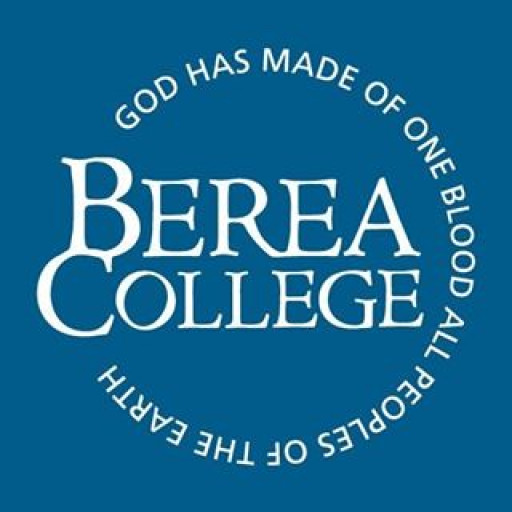Photos of university / #dartmouthcollege
Program Description: The Health Science: Healthcare Research program at Dartmouth College is designed to prepare students for impactful careers in the healthcare industry through rigorous interdisciplinary training and practical research experience. This program provides a comprehensive understanding of the core principles of health sciences, including healthcare systems, health policy, medical research methodologies, and data analysis. Students will engage with cutting-edge research techniques and gain the skills necessary to evaluate healthcare interventions, interpret clinical data, and contribute to improving patient outcomes. The curriculum emphasizes both theoretical knowledge and hands-on application, enabling students to develop critical thinking, problem-solving, and communication skills essential for advancing healthcare practices. Throughout the program, students will have opportunities to collaborate with faculty on ongoing research projects and participate in internships or fieldwork that deepen their understanding of real-world healthcare challenges. The program also fosters a multidisciplinary approach, integrating insights from public health, medicine, social sciences, and technology to prepare graduates for diverse roles such as healthcare analysts, policy advisors, research scientists, and healthcare administrators. Graduates will be well-equipped with the analytical tools and evidence-based approaches needed to address complex health issues, contribute to policy development, and innovate in healthcare delivery. The Dartmouth College Healthcare Research program aims to cultivate a new generation of leaders dedicated to advancing healthcare quality, accessibility, and effectiveness through research and evidence-based practice.
The Healthcare Research program at Dartmouth College offers a comprehensive and interdisciplinary approach to understanding and advancing healthcare practices through rigorous research methods. Designed for students passionate about improving health outcomes, this program provides an in-depth exploration of the policies, ethics, and methodologies that underpin healthcare research. Students will engage with a diverse curriculum that covers topics such as clinical research design, health data analysis, health services research, patient-centered outcomes, and public health strategies. The program emphasizes practical experience, preparing students to conduct original research, analyze complex health data, and contribute to evidence-based decision-making in healthcare settings. Participants will have opportunities to collaborate with faculty members who are leaders in the field, participate in ongoing research projects, and apply their knowledge in real-world contexts. The curriculum combines classroom instruction with hands-on training, fostering critical thinking and analytical skills necessary for addressing pressing healthcare issues. Graduates of this program will be equipped with the essential tools and knowledge to pursue careers in healthcare research, policy development, public health, or further academic study. Whether students are interested in clinical trials, health economics, or health policy analysis, the Healthcare Research program at Dartmouth provides a rigorous academic foundation and practical experience to help them succeed in making a meaningful impact on healthcare systems and patient care worldwide.
Program Requirements for Healthcare Research at Dartmouth College:
Applicants to the Healthcare Research program are expected to have a strong academic background in relevant fields such as public health, biomedical sciences, social sciences, or related disciplines. A bachelor's degree from an accredited institution is required for admission, with a competitive GPA typically above 3.0. Successful applicants should demonstrate research experience or related skills, including familiarity with quantitative and qualitative research methods, statistical analysis, or data management. Prior coursework in epidemiology, biostatistics, or health policy is preferred but not mandatory. Candidates must submit official transcripts, a statement of purpose outlining their research interests and career goals, and letters of recommendation from academic or professional references who can attest to their research potential and academic readiness. GRE scores may be required, depending on application cycles, with competitive scores favorably impacting admissions decisions. International students must provide proof of English language proficiency through tests such as TOEFL or IELTS. Additionally, applicants should present a resume or curriculum vitae highlighting relevant research, work experience, or academic achievements. To enhance their application, students are encouraged to specify their research interests within healthcare research, such as health disparities, health services, policy analysis, or clinical research. The program may also require an interview, either in person or virtual, to assess the applicant's readiness and motivation for graduate-level research. Financial aid and assistantship opportunities are available for qualified students, pending application and department review. Prospective students should ensure that they meet all application deadlines and submit complete materials via the Dartmouth College graduate admissions portal. Once admitted, students are expected to complete core coursework in research methods, biostatistics, and health sciences, alongside specialized electives aligned with their research interests. The program aims to prepare students for careers in academia, healthcare policy, clinical research, or public health practice, emphasizing rigorous research skills, ethical standards, and critical analysis in healthcare settings.
Funding options for the Health Science: Healthcare Research program at Dartmouth College include a variety of financial aid opportunities designed to support eligible students throughout their studies. Dartmouth offers merit-based scholarships, which are awarded based on academic achievement, leadership qualities, and potential contributions to the campus community. These scholarships can significantly reduce the overall cost of attendance and are renewable for subsequent years, provided students meet certain academic standards. Additionally, need-based financial aid is available for students who demonstrate demonstrated financial need. The college's Office of Financial Aid conducts a comprehensive review of each applicant's financial circumstances to determine eligibility and award amounts, ensuring that a diverse range of students can access the program.
Students may also consider external funding sources such as federal and state grants, scholarships from private foundations, and professional organizations related to healthcare and research. Federal grants like the Pell Grant are generally available to undergraduates with financial need, while other federal aid programs such as Direct Loans can assist with educational expenses. Dartmouth also participates in financial aid programs like work-study opportunities, allowing students to earn funds through part-time employment on campus.
Moreover, many students finance their education through a combination of scholarships, grants, loans, and personal savings. The college advises prospective students to carefully review the financial aid application process, including submitting the Free Application for Federal Student Aid (FAFSA) and the College Scholarship Service (CSS) Profile, to maximize their eligibility for aid. In some cases, students may also explore private loan options, although these should be considered only after exhausting other forms of aid due to their repayment obligations. The college provides guidance and counseling services to help students understand their financial options and develop manageable repayment plans post-graduation.
Dartmouth’s commitment to affordability and access ensures that students in the Healthcare Research program have multiple pathways to finance their education and focus on their academic and professional development without undue financial stress.
The Healthcare Research program at Dartmouth College is designed to provide students with a comprehensive understanding of research methods and their application within healthcare settings. This interdisciplinary program integrates principles from medicine, public health, statistics, and social sciences to prepare students for careers in medical research, healthcare policy, and clinical trials. Students will engage in rigorous coursework that covers epidemiology, biostatistics, health services research, and ethical considerations in medical research. The curriculum emphasizes both theoretical knowledge and practical skills, including data analysis, research design, and critical evaluation of scientific literature.
Participants have opportunities to work on ongoing research projects with faculty members who are experts in various fields such as clinical research, health policy, and biomedical sciences. The program also offers training in the use of advanced analytical tools and software critical for healthcare data analysis. Students are encouraged to participate in internships and collaborative projects with hospitals, research institutions, and public health agencies to gain real-world experience.
Graduates of the program are equipped to pursue advanced research positions in academia, government agencies like the National Institutes of Health, private industry, and non-profit organizations dedicated to health and medical research. The program aims to foster interdisciplinary collaboration and innovation, addressing contemporary healthcare challenges through evidence-based research and dedicated inquiry. While specific details about the program’s structure, duration, and admission requirements are available on the Dartmouth College website, this overview reflects the institution's commitment to fostering excellence in healthcare research education.










